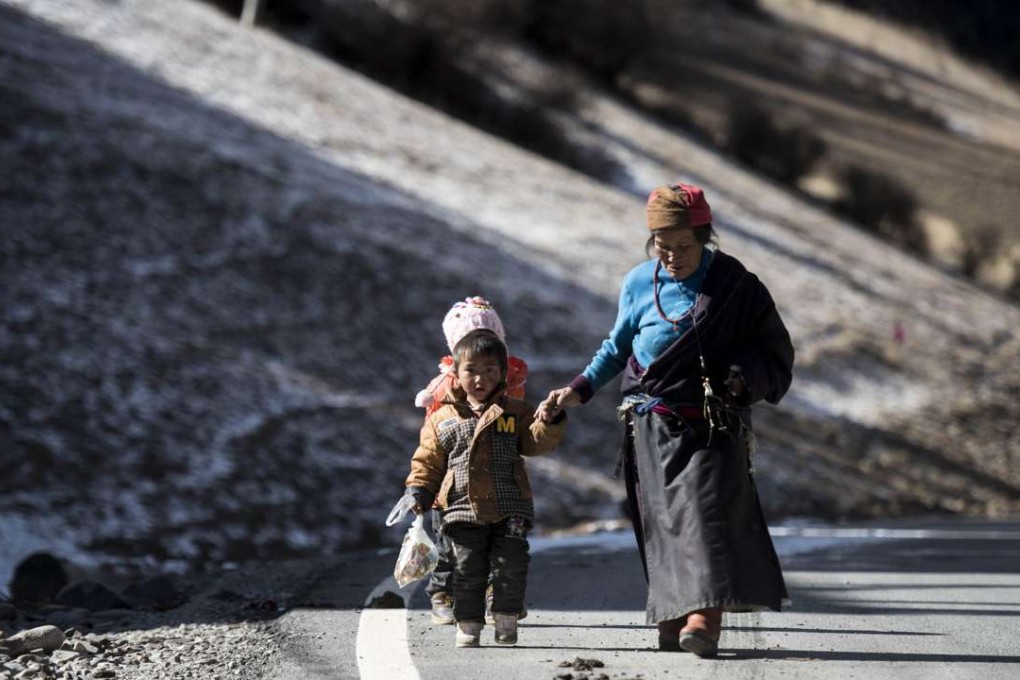How Tibetan nomads have become lost in transition to city life

By mid-morning, Lobsang’s leather cowboy hat is askew, his black robes dishevelled, and his breath stinks of booze. Once a nomad herder roaming the high Tibetan plateau, instead he stumbles around his sparse new concrete house.
For decades he and his wife grazed yaks and sheep, living a life little changed in centuries, until they acquiesced three years ago to government calls to give up their yak-hair tents for permanent housing. Now they live in a resettlement village, row after row of identical blue-roofed grey shells, an hour’s drive from Aba in Sichuan province along winding mountain roads.
“Everything changed when we moved to this town,” said Tashi, who like her husband is in her 40s but not sure of her exact age. “First we ran out of money, then he couldn’t find suitable work and then he started drinking more.”
Packed cities, empty villages: Vietnam’s migration dilemma
Mainland authorities say urbanisation in Tibetan areas and elsewhere will increase industrialisation and economic development, offering former nomads higher living standards and better protecting the environment.
Those who move receive an urban hukou, or internal residence permit that determine access to social services. The government offers free or heavily subsidised houses, medical insurance, and free schooling.
But critics say the drive has a one-size-fits-all approach and many former pastoralists have not prospered.
Unlike the voluntary urbanisation of the early 2000s, when many adults maintained subsistence lifestyles while sending children and the elderly into towns, “the policy ... shoves nomads into these resettlements thinking that is good for them”, said Andrew Fischer, of the International Institute of Social Studies at Erasmus University in Rotterdam.
“But then that gives rise to a variety of problems like unemployment, social problems, alcoholism ... which are typical hallmarks of rapid social dislocation.”